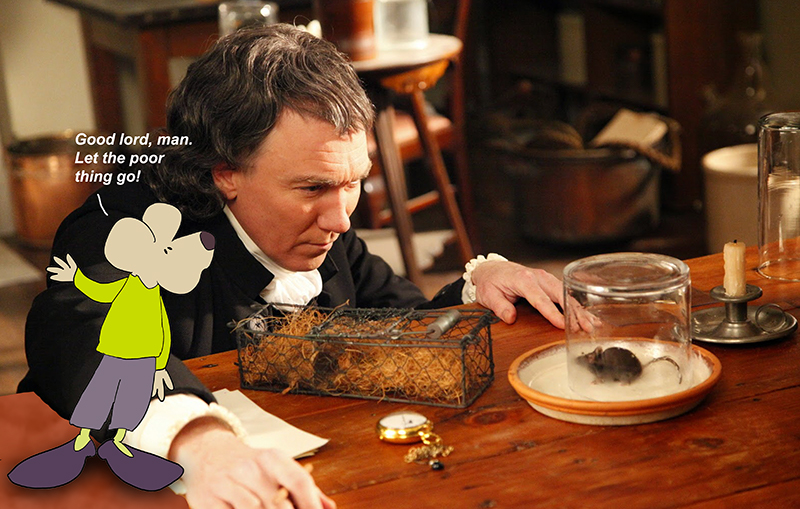He was probably wearing a suit with a vest, as all the men did in those days, there in England. Joseph Priestley stood in the laboratory at Lord Shelburne’s estate, the Boxwood House in Wiltshire. Truth be told, it was just probably some room in the guy’s house.
Anyway, it was on this date, August 1, 1774, and here is how the experiment went down.
I should say first that Joseph Priestley was known for a lot of things besides chemistry. Sure, he was called “the father of chemistry” later on. But he was also a philosopher, a supporter of the French Revolution, a dissenter from the Church of England, and the starter of British Unitarianism.
Joseph Priestley published many papers and pamphlets in his time, talking about philosophy, science, and dissension from the English Church. The religious so hated him that he was eventually forced to flee in 1791 after a mob burned down his Birmingham home and church.. First, he went to London and then to the United States. He spent his last ten years in Northumberland County, Pennsylvania.
Anyway, back to the science end of things. He made lots of discoveries in his time. But his most famous discovery happened during that experiment at the Boxwood House in 1774.
He used 12-inch-wide glass — a sort of “burning lens” — and he aimed it at a lump of mercuric oxide. The mercuric oxide had been placed in an upside-down glass container in a pool of that crazy, crazy mercury. When he did this, a gas was produced. And once it did, he announced five or six times that it was “good as common air.”
Priestley wasn’t much for naming things. He called this air “dephlogisticated air.” Thank god for the French chemist Antoine Lavoisier who discovered its role in combustion and named it oxygen in 1778.
Otherwise, we’d be saying we breathe in “dephlogisticated air.”
But Priestly was also the first one to associate breathing air and our bloodstream as having a connection. And that all happened just 240 years ago. Think how far science has come in such a short time.
Think of how future people will see those who did not take a vaccination to stop a global pandemic that has killed 4.2 million people. Obtuse, they will say.
Perhaps those who shun scientific proof aren’t getting enough dephlogisticated air.
===========
“Feelings come and go like clouds in a windy sky. Conscious breathing is my anchor.”
― Thich Nhat Hang
==========
“Breath is the finest gift of nature. Be grateful for this wonderful gift.”
― Amit Ray
==========
“I took a deep breath and listened to the old brag of my heart. I am, I am, I am.”
― Sylvia Plath, The Bell Jar
==========
The air we breathe. Oh, too.
